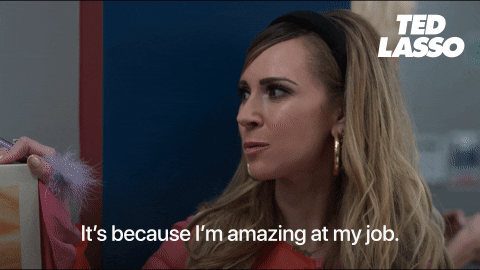
Last week I kicked off a series about the key to HR’s success.
tl;dr: it’s all about navigating all the relationships HR manages and their competing expectations.
This week I’m diving into the trickiest relationship of them all, the one between founders and their Chief People Officer/Head of HR.
What makes this relationship so tricky?
Here are 3 reasons why this relationship can be hard to manage:
- Founders can be possessive of their creation (their company)
- Priorities aren’t aligned
- There’s a lack of understanding of the role of HR
To note: these challenges can also apply to more than just Founders! I see #2 and #3 extend to executive leadership teams.
#1: Founders are possessive.

I do not blame founders for being possessive over their companies. Founders pour their heart, soul, and resources into their company and sometimes have to sacrifice a lot to see their vision come to life.
Their company becomes an extension of their identity; therefore, they feel a deep attachment to all decisions or anything that can threaten their vision.
After all, their creation could be their legacy.
That attachment can create intense protectiveness and even defensiveness when it comes to any changes that need to be made.
Enter a Chief People Officer.
Suddenly things are up for debate from what decisions are being made to core components of the culture! Any CPO will have ideas on how things should be done and the impact on the employees.
And the relationship can become tense.
Behind every great founder is a frustrated CPO who is just trying to have their ideas heard AND implemented.
A tip for dealing with a Founder who is being inflexible:
Work on the relationship. Understanding the founder’s vision for the company will be key here.
That means asking questions like:
JOIN 130K+ HR LEADERS
Get insights, learnings, and advice on how to build companies and cultures that people actually love.
No spam. Unsubscribe any time.
- How would you describe the current culture?
- What behaviors do you want to be celebrated here?
- What, if anything, would you change about the culture?
- What do you fear the most in terms of the culture and employees?
- What decisions do you want to have an active say in?
- What is the best way to give you feedback?
Making sure to hear your founder out and know what they are most sensitive about will build trust and help your judgment for the future.
#2: Priorities aren’t aligned.

This is a bit more straightforward than #1.
Founders’ priorities usually revolve around the success of the business which means a focus on if revenue goals are being hit.
Whereas CPOs are usually more focused on the intangibles of the business like work culture.
These differences in priorities can make it hard to find common ground.
Especially because most initiatives CPOs put forth will require a monetary investment.
The best way to find common ground? Discuss the trade-offs. What are the tradeoffs if you don’t invest in your employees and their wellbeing?
Don’t forget: the more engaged employees are, the most productive employees are, the more profitable a company is.
Just sayin’!
#3: HR is misunderstood.

I went from feeling like a misunderstood teenager to feeling like my entire profession is misunderstood. Cue my screaming into the void playlist.
HR is one of the most misunderstood functions at a company because:
- It encompasses a range of functions like payroll, benefits, hiring, training, development, and employee relations.
- There is limited visibility: Employees will feel the impact of HR team before they see the impact. A lot of HR work is done behind the scenes and most employees don’t know the full scope of the role or contributions!
- A perception of compliance exists: HR is frequently seen as the rule enforcers rather than supporting things like engagement and development.
- There are many stereotypes: HR isn’t your friend!! Everyone has said this at some point or another, including myself. But these stereotypes actually hurt the forward-thinking HR folks who are trying to make work better for everyone. These stereotypes also lead employees to misunderstand the actual function of HR. Double whammy.
These misunderstandings can make the relationship between founders <> CPOs challenging.
I’ve found a lot of founders don’t know HOW to work with HR.
An approach that could solve this problem? Offer a menu. A menu can outline all the functions of HR and help a founder understand all the possible responsibilities of HR.
Here’s a list of 12 key functions of HR to help you build out your menu!
How to know if your Founders are worth it:

One of the most common frustrations I hear from folks in HR is with their founders or leadership team.
Inevitably, I’m asked: how to know if a team or company is worth it?
My take? Do you believe that the founders or leaders are capable of change?
If the answer is yes, then try to implement some of the strategies above and work on building a strong relationship.
If the answer is no, plan your exit strategy.
There are founders and companies out there that aren’t worthy of you.
Never forget that!


